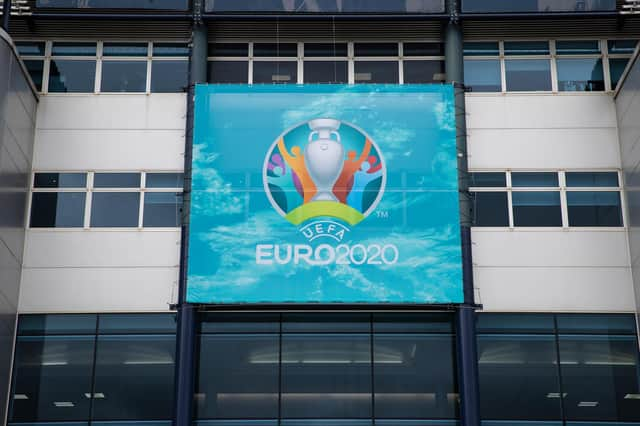Croatia join Czech Republic in pulling out of Scottish Euro 2020 training base over Covid-19 fears


The Croatians were due to stay at St Andrews during the tournament but will now remain in their home city of Rovinj "due to the potential impact of the Scottish COVID-19 regulations on the national team’s daily routines".
It follows a decision by the Czech Republic to also cancel their plans to stay at the Oriam Centre in Edinburgh and remain in Prague, claiming that Scotland s strict quarantine rules "doesn't go along with the UEFA Return to Play Protocol".
Advertisement
Hide AdAdvertisement
Hide AdBoth teams made the decision after contacting UEFA to express concerns over restrictions in Scotland leading to the possibility of their entire squad being placed into self-isolation in the event of a positive Covid-19 test within their camp.
The Czechs provide the opposition for Scotland's opening match of Euro 2020 at Hampden on June 14 while Croatia travel to Glasgow for the third and final group fixture on June 22.
A statement from the Croatian Football Federation read: "The management of the Croatian Football Federation (HNS) has decided that the Croatian men's senior team will remain in Rovinj during the European Championship instead of traveling to the team camp in St Andrews, as it had originally been planned.
"The HNS received a recommendation from UEFA to change the location of its team base camp, due to the potential impact of the Scottish COVID-19 regulations on the national team’s daily routines. The Croatian Football Federation was unwilling to risk the possibility of positive PCR results causing a large part of the team and team staff to be issued mandatory self-isolation orders, which is why the Croatian FA has decided to change its original plan of having the team based in St Andrews during the EURO.
"After a detailed analysis of all available options, and through intense consultation with UEFA, the management of the HNS has agreed with head coach Zlatko Dalić and remainder of the team staff of the Croatian national team that the team will remain in Rovinj, where the Vatreni have been training and preparing ahead of the EURO. The team will stay at Grand Park hotel, and will train at NK Rovinj Stadium."
Croatia head coach Zlatko Dalić backed the move, adding: "Considering the present circumstances, I think this is the best option for the team. We know that we’ll have excellent conditions here, that the accommodation will be impeccable, and that the training ground is of high quality – in the limited amount of time we had to make this decision, no other location could guarantee us all of the above. We’ll do our best to keep the team isolated and in peace, but I’m sure that the support of Croatian fans here can only bring us extra energy and motivation. This is the best outcome that we could reach in these strange times, and we now have a unique opportunity to spend this tournament in our own country.”
Marijan Kustić, executive director of the Croatian Football Federation added: "We acted responsibly and we found a quick solution for our team in these exceptionally difficult circumstances. We couldn’t allow ourselves to place the whole team in danger of being sent into self-isolation by travelling to St Andrews.”
Get a year of unlimited access to all The Scotsman's sport coverage without the need for a full subscription. Expert analysis of the biggest games, exclusive interviews, live blogs, transfer news and 70 per cent fewer ads on Scotsman.com - all for less than £1 a week. Subscribe to us today
Comments
Want to join the conversation? Please or to comment on this article.